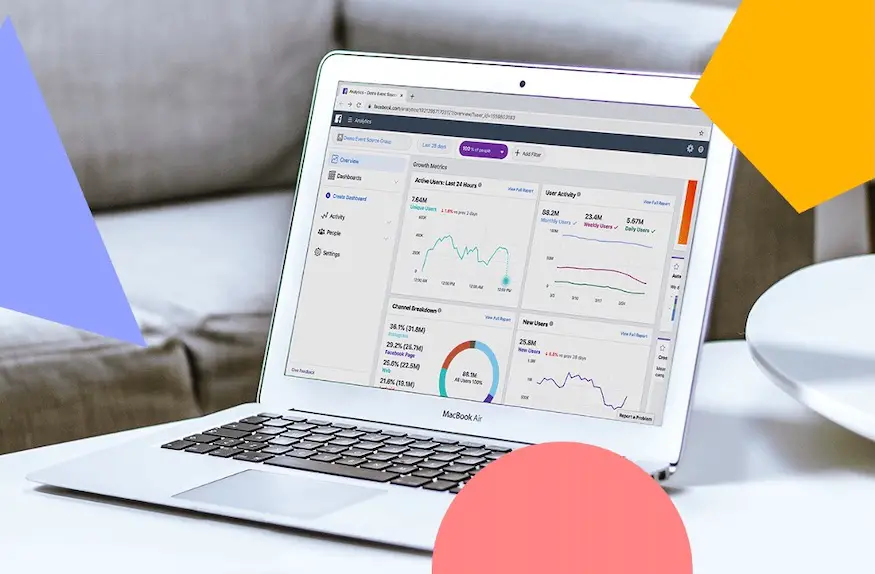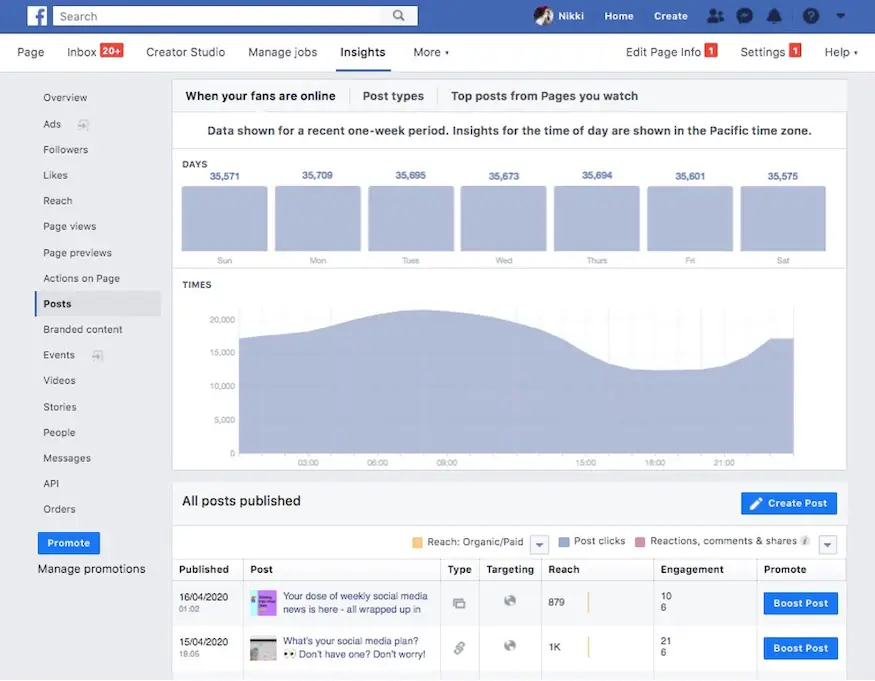Benefits of Using Facebook Analytics for Targeted Marketing & How to Start

In today's digital age, businesses are looking for new and innovative ways to reach their target audience and increase their customer base.
Facebook is one of the most popular social media platforms for businesses to advertise and promote their products and services. With over 2 billion monthly active users, Facebook provides businesses with a massive potential audience to reach.
However, with so many users, it can be challenging to determine the best way to target your marketing efforts to get the most returns on investment (ROI). This is where Facebook Analytics comes into play.
Facebook Analytics is a powerful tool that can help businesses gain insights into their audience and make data-driven decisions to improve their marketing strategy.
In this article, we will explore the benefits of using Facebook Analytics for targeted marketing and provide some tips on how to make the most out of this tool.
What is Facebook Analytics?

Facebook Analytics is a powerful tool that provides businesses with in-depth insights into user behavior and engagement across their Facebook Pages, mobile apps, and websites. It allows businesses to track and analyze user activity, including page views, likes, comments, shares, and more.
With Facebook Analytics, businesses can gain a deeper understanding of their customers' behavior and preferences, which can be used to create more effective Facebook marketing campaigns.
Features of Facebook Analytics
Among the key features of Facebook analytics are:
I. Audience Insights
Audience Insights is a powerful feature of Facebook Analytics that provides businesses with a detailed understanding of their target audience. It allows businesses to view demographic information, such as age, gender, location, and language, as well as interests and behaviors. With this information, businesses can create highly targeted Facebook ads and marketing campaigns that resonate with their target audience.
II. Conversion Tracking
Conversion tracking allows businesses to track user activity across their Facebook Pages, mobile apps, and websites. It enables businesses to track the actions that users take, such as signing up for a newsletter, making a purchase, or downloading an app. With this information, businesses can measure the effectiveness of their marketing campaigns and optimize their efforts to drive more conversions.
III. Custom Audiences
Custom Audiences is another powerful feature of Facebook Analytics that enables businesses to create highly targeted marketing campaigns. It allows businesses to upload a list of customer data, such as email addresses or phone numbers, and target those customers with specific Facebook ads.
Custom Audiences can also be created based on website or app activity, allowing businesses to retarget users who have previously interacted with their brand.
IV. Lookalike Audiences
Lookalike Audiences is a feature that enables businesses to find new customers who are similar to their existing customers. It uses the data collected by Facebook Analytics to identify users who share similar interests, behaviors, and demographics with existing customers. This allows businesses to expand their reach and target new customers who are more likely to engage with their brand.
Benefits of Facebook Analytics for Targeted Marketing

Some of the benefits of using Facebook analytics for targeted marketing on the platform include:
1. Improved Targeting
By leveraging the insights provided by Facebook Analytics, businesses can create highly targeted marketing campaigns that resonate with their target audience. They can use audience insights to understand the demographics, interests, and behaviors of their customers, and use this information to create more personalized and relevant ads.
2. Increased Engagement
Facebook Analytics provides businesses with valuable insights into user behavior and engagement. By analyzing this data, businesses can identify the types of content that resonate with their audience and create more engaging and effective content. This can help businesses increase engagement and build stronger relationships with their customers.
3. Higher Conversions
With Facebook Analytics, businesses can track user activity and measure the effectiveness of their marketing campaigns. By analyzing conversion data, businesses can identify areas for improvement and optimize their campaigns to drive more conversions. This can help businesses increase their ROI and generate more revenue from their marketing efforts.
4. Cost-Effective Advertising
Facebook Ads are cost-effective compared to traditional advertising channels. By using Facebook Analytics to create highly targeted campaigns, businesses can optimize their ad spend and reach their target audience more effectively. This can help businesses save money on advertising costs while still driving results.
Getting Started with Facebook Analytics for Targeted Marketing
To start using Facebook Analytics for targeted marketing campaigns on the platform, follow the following steps:
1. Set Up Facebook Pixel
The first step to getting started with Facebook Analytics is to set up Facebook Pixel on your website. Facebook Pixel is a tracking code that allows businesses to track user interactions on their website and analyze user behavior on Facebook. This can provide valuable insights into user engagement and help businesses create more effective social media marketing campaigns.
2. Connect Your Facebook Page
Once Facebook Pixel is set up, businesses can connect their Facebook page to Facebook Analytics. This will allow businesses to track user interactions on their Facebook page and analyze engagement metrics such as likes, comments, and shares.
3. Explore the Dashboard
After connecting your Facebook page, take some time to explore the Facebook Analytics dashboard. The dashboard provides businesses with a wide range of metrics and data points, including user demographics, interests, and behaviors.
By exploring the dashboard, businesses can gain valuable insights into their target audience and create more effective marketing campaigns.
4. Set Up Custom Audiences
Facebook Analytics allows businesses to create custom audiences based on specific demographics, interests, and behaviors. This can help businesses reach highly targeted groups of users who are most likely to engage with their brand.
To get started with custom audiences, businesses can navigate to the "Audiences" tab in the Facebook Ads Manager and create a new custom audience.
5. Analyze Engagement Metrics
Facebook Analytics provides businesses with valuable insights into user engagement, including likes, comments, shares, and clicks. By analyzing these metrics, businesses can create more engaging content and improve their social media strategy.
Businesses can also use engagement metrics to optimize their ad targeting and improve the performance of their marketing campaigns.
In Conclusion
Facebook Analytics provides businesses with valuable insights into user behavior and engagement on the platform, allowing them to create highly targeted marketing campaigns that are more likely to resonate with their target audience.
By analyzing user demographics, interests, and behaviors, businesses can create custom audiences, optimize ad targeting, and improve engagement metrics.
As such, Facebook Analytics is an essential tool for businesses looking to improve their social media strategy and grow their brand on the world's largest social media platform.















![Start a Career in Gaming Industry: Tips & Best Employment Opportunities [node:title]](/sites/default/files/styles/video_thumbnail_bottom/public/gamer-playing-first-person-shooter-tournament-using-rgb-keyboard-headphone-3933.jpg?itok=PbcL-V2p)




